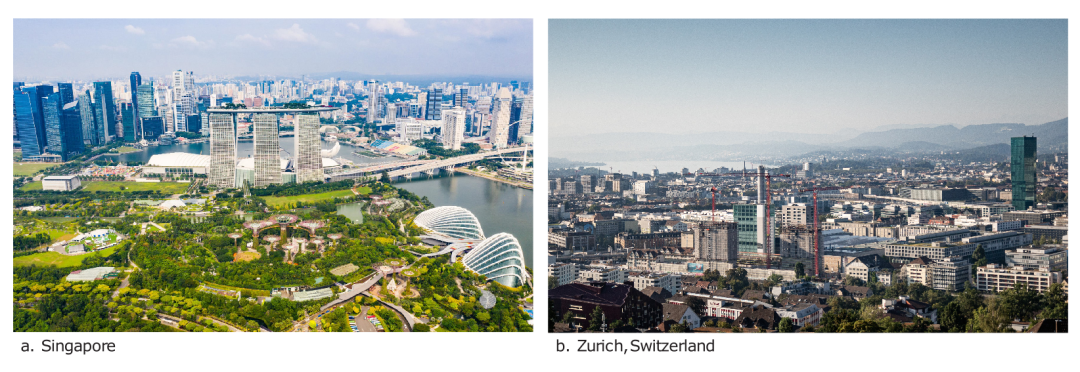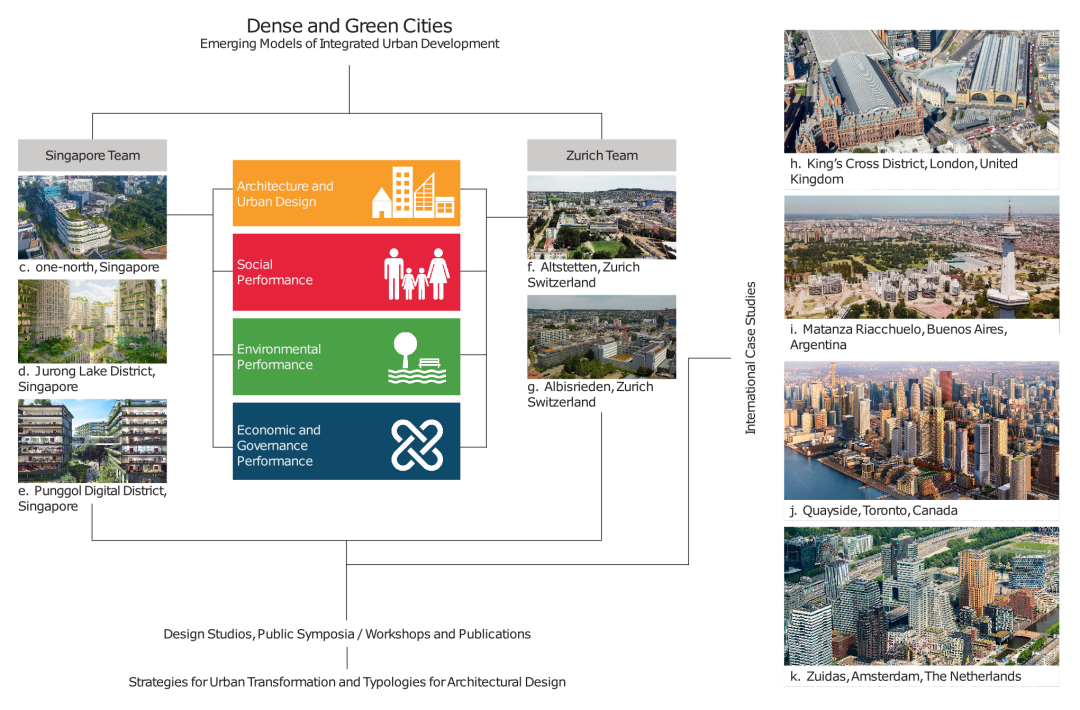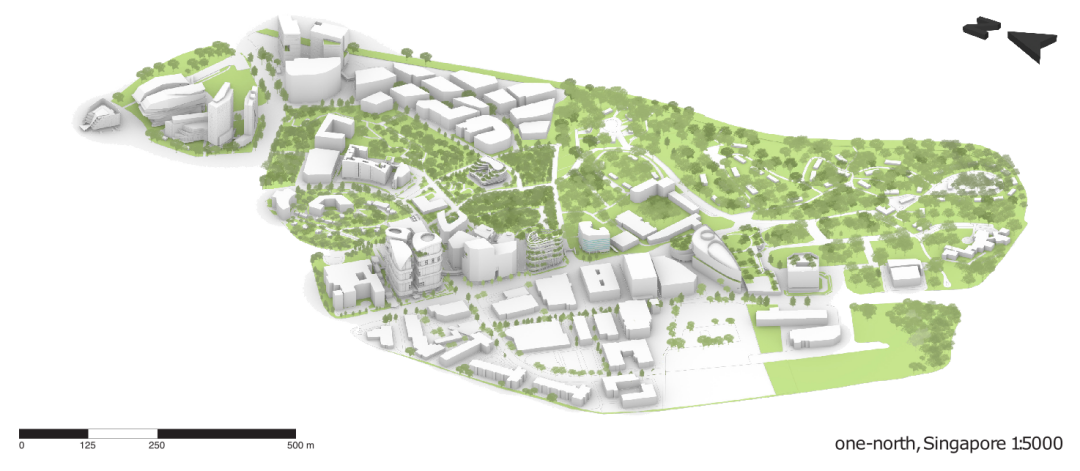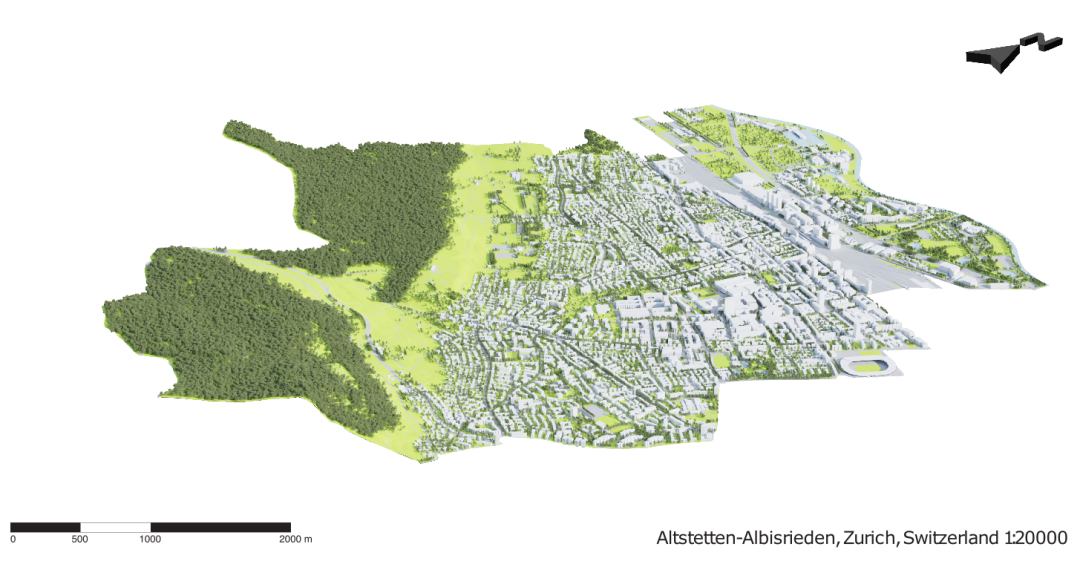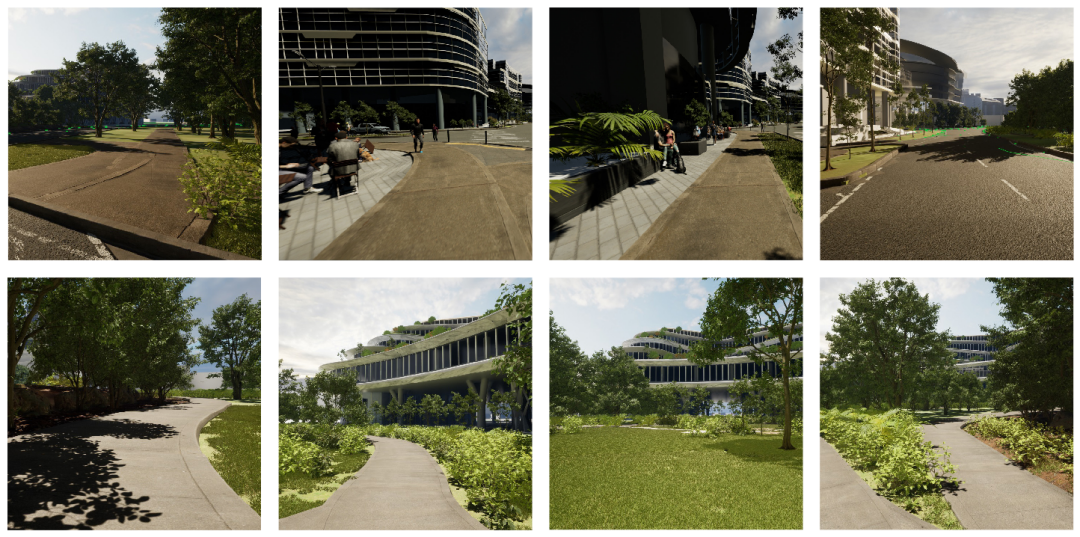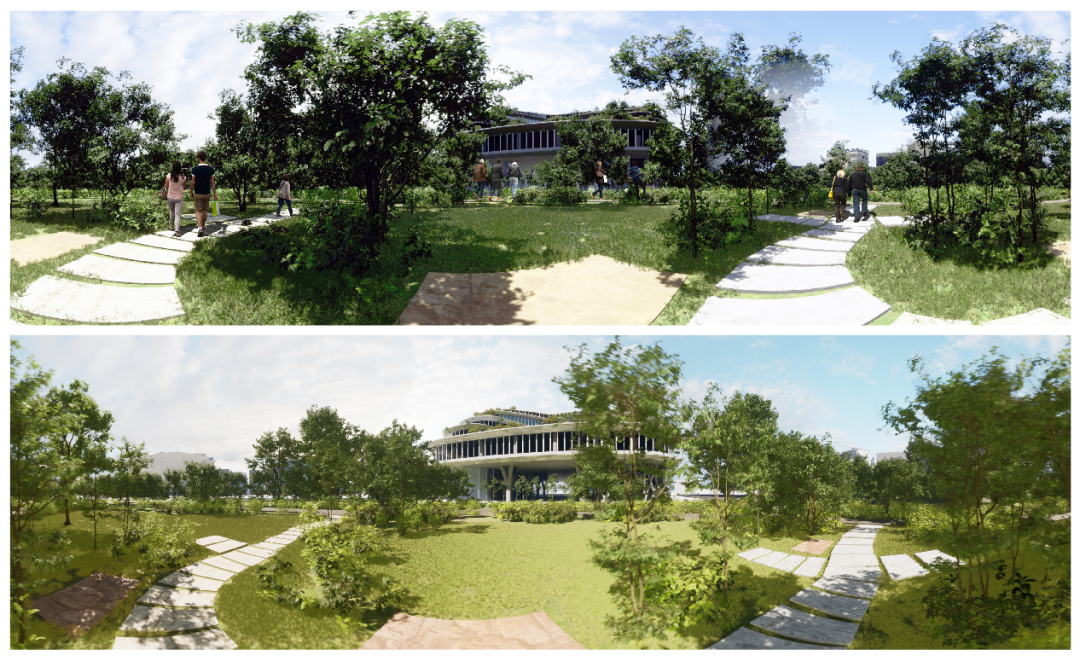RESEARCH FRAMEWORK
a. A,amda Ahn / Alamy Stock Photo | b. Yingying Jiang, Michelle
Contemporary urban planning and design practice is looking increasingly to the development of sustainable integrated districts (SIDs) as a model for high-density, high-liveability future cities. SIDs aim to fully realise the potential of urban innovations and systems solutions by deploying and applying them at the district scale. The concepts of density and sustainability in SIDs are seen as mutually dependent and synergistic. Understanding the performance of SIDs in relation to conventional planning models in such different contexts helps expand our understandings of their potential as effective models for future urban developments. And studying them in detail also helps identify factors needed to successfully implement SIDs and governance instruments necessary to enable such developments in different socio-economic contexts.
RESEARCH FRAMEWORK
c. CPG Consultants Pte Ltd | d. KCAP | e. Jurong Trade Cooperation | f. Nicolo Guariento | g. Nicolo Guariento | h. John Sturrock | i. GCBA | j. Waterfront Toronto | k. Bram van de Biezen / Overflight Stock
Case Study
one-north-Singapore
one-north-Singapore is a research and business park in southern Singapore planned as a hub for innovation and urban technology test-bedding. The 200-hectare development houses corporations, start-ups, and emerging industries in sectors including the biomedical sciences, info-communications technology, media, science and engineering. It is planned as a vibrant ‘work, live, play, and learn’ environment preserving much of its topography and with a linear park connecting its many clusters.
Altstetten-Albisrieden
Altstetten-Albisrieden is a district west of Zürich. It covers 12.1 km2 and extends from the Limmat River to the Uetiliberg Foothills. The district relies on its natural geographic conditions and furnishes rich green spaces following the concept of a “Garden City” that has been promoted since the 1930s. Its diversity in building typology, residency and community provides a good testbed for future urban transformation,focusing on densification, optimizing spatial connectivity and greenery provision.
A DIGITAL TWIN AND VR APPROACH TO IMMERSIVE SUSTAINABLE URBAN DESIGN
The ‘digital twin’ in our project serves as more than just a digital replica of the physical world. It acts as a central hub, seamlessly integrating various research dimensions, including architecture, social aspects, the environment, and economics, into a unified digital platform. This holistic approach enables us to comprehensively evaluate, validate, and cross-verify our research findings. To make these insights more accessible and engaging, we have developed an immersive Virtual Reality (VR) experience that showcases a digitally sustainable area within the one-north district in Singapore.
This VR environment transforms our core research insights into interactive 3D models and offers two distinct scenarios for exploration. Through this interactive platform, we aim to engage the public, providing a clear demonstration of how our proposed planning and design strategies enhance both liveability and vibrancy in sustainable integrated districts.
Scenarios 1
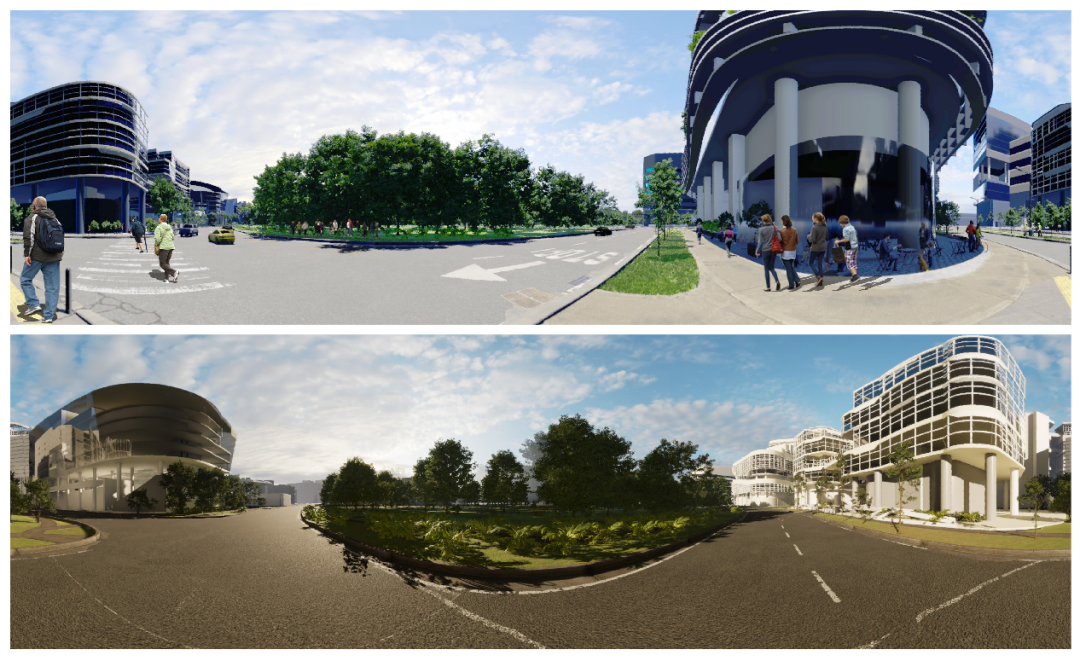
In this scenario, we delve into the implementation of mixed-use planning and design strategies, focusing on enhancing social vibrancy within sustainable integrated districts. Leveraging state-of-the-art Virtual Reality (VR) modelling, we meticulously reconstruct the pedestrian pathways and transportation infrastructure of one-north. This simulation allows us to study people movement dynamics and traffic flow. Through precise adjustments of various parameters, including urban and architectural layouts and amenity composition, we observe a significant uptick in pedestrian engagement across diverse street-level activities. Consequently, the urban landscape undergoes a notable transformation, becoming more vibrant and dynamic. Our use of advanced VR technology adds an immersive, nuanced dimension to our simulations. This capability enables us to prospectively assess the impact of urban interventions within a context that closely mirrors reality, providing valuable insights before actual implementation.
Scenarios 2
In this scenario, we delve into the strategic enhancement of urban green spaces, with a focus on integrating plant life along pedestrian pathways, establishing vertical green infrastructure, and expanding urban parks. This investigation sheds light on the positive effects of vegetation on pedestrian comfort levels within urban environments. To achieve a comprehensive understanding, our Virtual Reality (VR) model encompasses a diverse set of variables, including the Skyview factor, urban heat dynamics, and daily shading patterns. The use of VR technology adds an immersive, experiential layer to these simulations, allowing us to virtually ‘walk through’ future projects and gain first-hand insights into prospective enhancements before they are actually realized.
Cycles and Districts / [DEN] Dense and Green Cities
Principal Investigators: Prof. Sacha Menz, Prof. Dr Thomas Schroepfer
Co- Investigators: Assoc. Prof. Dr Lynette Cheah, Assoc. Prof. Dr Yuming Fu, Prof. Dr Christoph Hölscher, Asst. Prof. Dr David Kaufmann, Assoc. Prof. Dr Samson Lim, Prof. Freek Persyn,Asst. Prof. Dr Gordon Tan
Researchers: Dr Seppe de Blust, Dr Gabriela Debrunner, Dr Chloe GAO, Roderic Günter, Irina Orlenko, Anjanaa Devi Srikanth, Dr Lei Xu
Module Coordinator: Dr Michelle Yingying Jiang, Dr Srilalita Gopalakrishnan


